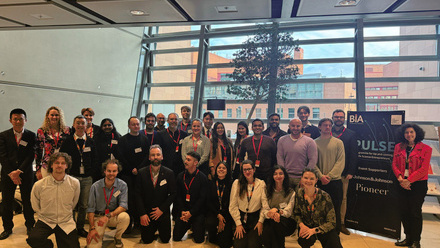bioProcess UK insight: Aligning the future of engineering biology with sustainable medicines manufacturing

In this blog, Luis Lacerda, Policy adviser and Suzanne Farid, Professor & Head of Biochemical Engineering at UCL explore the transformative potential of engineering biology and its critical role in addressing sustainability challenges in medicines manufacturing.
Engineering Biology presents a unique opportunity to revolutionise healthcare by unlocking therapeutic possibilities far beyond traditional medicines. As advancements in Engineering Biology accelerate, they bring significant manufacturing challenges and the need for processes that are sustainable, scalable, and cost-effective. In the context of medicines manufacturing, the critical question is how Engineering Biology innovations can reshape product and process design to meet future needs. What challenges might emerge, and how can we deliver solutions that prioritise both innovation and sustainability?
Revolutionising product and process design
Biologics, such as monoclonal antibodies and cell and gene therapies, have transformed disease treatment. Engineered biologics, the next generation of therapies, promise even greater precision and efficacy by combining multiple cargo and biocarrier components and adding new functionalities to therapies. For example, improved design of gene therapies such as next generation targeted viral vectors used to deliver genetic material to cells has the potential to improve the potency and stability of novel modalities.
However, manufacturing processes of biologics remain resource-intensive, demanding significant energy, water, and plastics. Beyond improving products, Engineering Biology can help drive sustainability. By developing recyclable materials, greener solvents, degradable biomaterials, and eco-friendly packaging solutions, Engineering Biology can pave the way for a circular economy in biologics manufacturing. For example, this might involve replacing single-use plastics with bio-based alternatives and exploring water-based processing to minimise solvent waste.
Collaboration as a catalyst
Delivering the full potential of Engineering Biology for sustainable medicines manufacturing requires robust collaboration between academia, industry, and policymakers to co-create solutions and equip engineers and scientists with expertise in Engineering Biology, sustainability and digitalisation. This is already exemplified by initiatives such as the EPSRC Future Targeted Healthcare Manufacturing (FTHM) Hub hosted at UCL, which placed partnerships and skills development at the heart of its approach to providing biomanufacturing solutions to revolutionise cancer care.
A call to action
We urge stakeholders across the BioIndustry Association (BIA) to join forces in prioritising sustainable solutions for the next generation of more complex medicines manufacturing. By fostering innovation in Engineering Biology and supporting policy changes to unlock its potential, we can ensure that future healthcare solutions are not only effective but also sustainable.
Context
This blog is informed by discussions from the recent FTHM Hub event organised by UCL: Engineering Biology for Health: Pioneering Sustainable Manufacturing Solutions (October 2024). The event brought together academics, industry leaders, regulators, and policymakers to explore EB’s transformative impact on biologics manufacturing. Discussions ranged from new modalities to the sustainability of processes and materials, as well as policy changes needed to overcome barriers.
Acknowledgments
We would like to thank all the contributors to the FTHM Hub event for their insights and enthusiasm. Professor Suzy Farid, co-director of the FTHM Hub, is also deeply honoured to have received the Peter Dunnill Award at bioprocessUK 2024 for her outstanding contributions to the field of bioprocessing. This recognition is a testament to the importance of collaboration in addressing the challenges we face in advancing sustainable manufacturing for engineered biologics.






